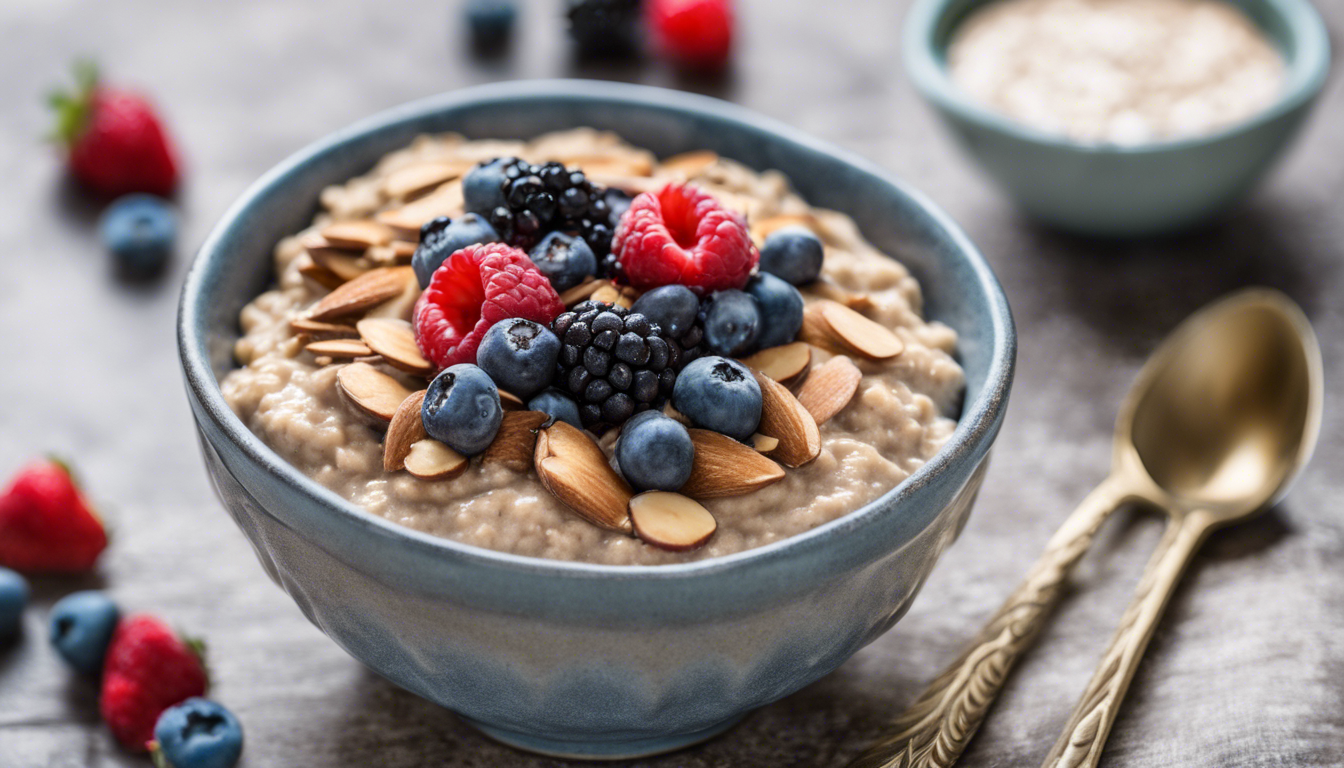
Nutritional considerations for joint health in vegans
When it comes to keeping our joints happy and healthy, what we put on our plate can have a significant impact. If you are traveling the vegan path, you might be curious about how to ensure your diet supports your joint health. Turns out, plants might just be your joints’ best pals – but there’s a bit more to the story.
First things first, let’s talk protein. Oh, the age-old question: “But where do you get your protein?” Despite the common myth, vegans can and do get plenty of protein from plant sources. Protein very important for muscle and tissue repair, and yes, this includes those supporting your joints. Foods like lentils, chickpeas, nuts, and seeds are amazing vegan warriors in the battle for good joint health.
But protein is not the sole player in the game. Omega-3 fatty acids, often praised for their anti-inflammatory powers, also have a starring role. While fish might be off the menu, flaxseeds, walnuts, and chia seeds, as well as algae-based supplements, ensure that vegans can still swim in a sea of omega-3 goodness.
There’s a mineral this is often flying under the radar when we chat about joints: calcium. It is not just about strong bones; calcium is also vital for proper muscle function and nerve transmission, affecting how our joints feel and operate. Green leafy veggies, fortified plant milks, tofu, and tahini are excellent sources that can help you hit your calcium goals.
And we mustn’t overlook Vitamin D, the sunshine vitamin. It’s essential for calcium absorption and ensuring our immune system doesn’t get any funny ideas about attacking our own joint tissues. While soaking up the sun can give us some Vitamin D, fortified foods and supplements are there to have our backs (and our joints) on less sunny days.
As for antioxidants, they’re like the superheroes of nutrient world, battling against oxidative stress and inflammation that can wreak havoc in our bodies. Vibrantly colored fruits and vegetables are chock-full of these compounds. Ponder berries, oranges, and leafy greens to give your joints that extra layer of protection.
Lastly, let’s chew on some minerals: magnesium and potassium. These are like the dynamic duo of joint support, helping with muscle function and reducing stiffness. Avocados, bananas, and whole grains can be go-tos to keep your minerals in check.
In the lush garden of plant-based nutrition, there’s plenty to harvest for joint health. Embracing a variety of these foods while monitoring your nutrient intake is key to ensure your vegan diet isn’t just delicious, but also joint-friendly. By eating mindfully, vegans can not only thrive but provide their joints with a veritable feast of beneficial nutrients.
The impact of plant-based diets on inflammation and arthritis
As we delve into the world of healing and harming foods, it is crucial to uncover the truth about plant-based diets and their influence on inflammation, a common villain behind joint pain and arthritis. A vegan diet, abundant in anti-inflammatory foods, can be likened to a gentle, yet powerful, in-house therapist for your aching joints.
The connection between what we eat and inflammation is firmly established, with certain foods being known to either provoke or pacify this immune response. Animal products, often high in saturated fat and endotoxins, can trigger inflammatory processes in the body. Conversely, vegan diets tend to be rich in phytonutrients and fibers that may help lower inflammation.
So, what puts the ‘anti’ in ‘anti-inflammatory’ when it comes to vegan diets? Whole plants are cornerstones of anti-inflammatory eating, with fruits, vegetables, whole grains, legumes, nuts, and seeds at the front line. These unassuming heroes contain a plethora of antioxidants, polyphenols, and fiber, which work in synergy to reduce inflammation. For starters, berries and leafy greens contain substances like quercetin and kaempferol, which have been linked to anti-inflammatory effects.
And let’s not forget about curcumin, found in turmeric, which has been extensively studied for its potent anti-inflammatory properties. In fact, it is often compared to anti-inflammatory drugs, minus the side effects. Turmeric, and its golden child curcumin, can be easily incorporated into vegan dishes, giving both your food and your joints a healthy boost.
On top of that, plant-based diets are naturally high in fiber, and this isn’t just good news for your digestive tract. Fiber has been associated with lower C-reactive protein (CRP) levels, an inflammation marker in the blood. Think beans, oats, and chia seeds – these fiber superheroes can help extinguish the inflammatory fire from within.
For those wrestling with the hardships of arthritis, a vegan diet may prove beneficial. Research suggests that such diets could help alleviate the symptoms of rheumatoid arthritis, including joint swelling and pain, which can significantly improve the quality of life. Indeed, some people with arthritis who have adopted a vegan diet have reported reduced pain intensity and duration, as well as improved joint function.
However, it is not just about adding plants to your plate; it’s also about what you’re taking out. Removing animal products might reduce the intake of pro-inflammatory compounds found in these foods. So, by saying ‘no’ to animal fats and ‘yes’ to plant nutrients, vegans might be giving their joints an easier time.
Embracing a carefully planned vegan diet could be a strategic move against inflammation and arthritis. With a treasure trove of anti-inflammatory foods to choose from, those on plant-based diets have a powerful toolkit at their disposal. By prioritizing whole foods and a variety of colors on the plate, you can help pacify inflammation and support overall joint health. Just remember, switching to a vegan diet isn’t a one-size-fits-all remedy and it’s important to adapt it to your personal nutritional needs.

Essential nutrients for joint health and vegan sources
Your joints need more than just a sunny disposition to stay limber and pain-free; they need a bounty of specific nutrients that can come straight from the earth. So let’s roll out the green carpet and introduce the roll-call of essential nutrients for joint health—and where to find them in the vegan kingdom.
Vitamin C isn’t just for staving off colds—it plays a critical role in collagen formation, the protein that gives structure to bones and cartilage. Okay, we all know oranges have got it, but so do strawberries, kiwi fruits, red bell peppers, and Brussels sprouts. These are not just snacks but joint-supporting powerhouses!
Then we have sulfur-containing compounds, necessary for forming connective tissue and cartilage. Ever heard of MSM (methylsulfonylmethane)? It’s found in plants and can work wonders on joint pain. Meanwhile, cruciferous vegetables like broccoli and kale are your go-to’s for a sulfuric feast.
Moving on to the mineral department, zinc plays the guardian of your immune system and helps with wound healing and tissue repair. Yes, oysters are out, but never fear, pumpkin seeds, lentils, chickpeas, and cashews are here!
An MVP in nerve function and blood pressure regulation is potassium. White beans, potatoes, beet greens, and even tomatoes are vegan vaults of this vital nutrient. For some muscle-soothing action, befriend these potassium-packed plants.
Don’t forget about vitamin E, the antioxidant guardian that protects your cells—including those in your joint—from oxidative damage. Almonds, spinach, and sweet potatoes carry the torch for vitamin E in the vegan village.
I hear you asking, “But what about glucosamine?”, famously found in shellfish shells. Aha! There are vegan supplements available, sourced from fermented corn. And while it’s not found naturally in plants, you can still keep your vegan card and give your joints some glucosamine goodness.
Another unsung joint hero is boron, for bone strength and the way it helps the body utilize other minerals like calcium and magnesium. Avocados and apples are top of the list when it comes to vegan foods with boron.
And lastly, let’s raise a glass to selenium, which is more than just a fancy element on the periodic table. It is vital for antioxidant enzymes that protect your tissues. Brazil nuts—eat just a few, and you’ve got your daily dose. You can also find this trace element in brown rice and sunflower seeds.
What this garden of nutrient delight teaches us is clear—nature has given us the tools to craft a joint-loving feast, vegan style. So go ahead, mix and match, create a colorful plate, and feed those joints with everything they need. Rest assured that with a little knowledge and creativity, a vegan diet can serve your joint health as well as it serves the planet.
Debunking myths about veganism and joint problems
Let’s tackle some of the tall tales and whispers surrounding veganism and joint problems head-on. There are fables aplenty, but when it comes to the health of your joints, knowing the facts is key.
Myth number one: Vegans, with their plant-exclusive diets, are destined for a life of weak bones and problematic joints. In reality, this couldn’t be further from the truth. A well-rounded vegan diet is rich in the nutrients discussed earlier, which are pivotal in maintaining and improving joint health. With gems like omega-3 fatty acids from flaxseeds and antioxidants from a rainbow of veggies, vegans have access to a treasure trove of joint-friendly nutrition.
Myth two whispers that a vegan diet is inherently lacking in the nutritional goods to keep joints in tip-top shape, like glucosamine or collagen, which are typically associated with animal sources. Psst… here’s the scoop: while it is true these elements aren’t found naturally in plants, vegan supplements have risen to the occasion. These provide the same benefits without compromising vegan ethics, debunking the myth that vegans miss out on essential joint nutrients.
Another common fabrication claims that vegans are always deficient in Vitamin D and calcium, making them more prone to joint issues. Yet, our vegan friends might chuckle at this, since many consume plant-based milks and foods fortified with these exact nutrients. Not to mention, engaging in outdoor activities can boost Vitamin D levels naturally.
Let’s also chat about protein—often the centerpiece of misguided myths. It’s an important building block, especially for joint-supporting muscles and tissues, and some naysayers might lead you to believe that without eating meat, you are bound to fall short on your intake. This fable unravels when faced with the protein prowess of lentils, quinoa, and plenty of other plant foods. Moreover, research has shown that not only can vegans meet their protein requirements but they can do so with a diverse and delicious menu.
Now, we land on arthritis. Some yarns spin tales that vegan diets will inevitably lead to this joint condition. However, studies say otherwise, pointing out that, in many cases, going green with your meals might actually ease arthritis symptoms due to the anti-inflammatory nature of many vegan foods.
“One cannot ponder well, love well, sleep well if one has not dined well.” – Virginia Woolf
This quote rings true even when discussing joint health. Dining well on a varied, nutrient-rich vegan diet can mean thinking, loving, and moving well—free from the myths that shroud veganism in unsubstantiated concerns. Factual evidence and countless personal successes highlight how a mindful vegan diet can be a boon for both joints and overall health. So, let’s keep these myths where they belong—in storybooks—and focus on nourishing our bodies with the best that plant-based eating has to offer.